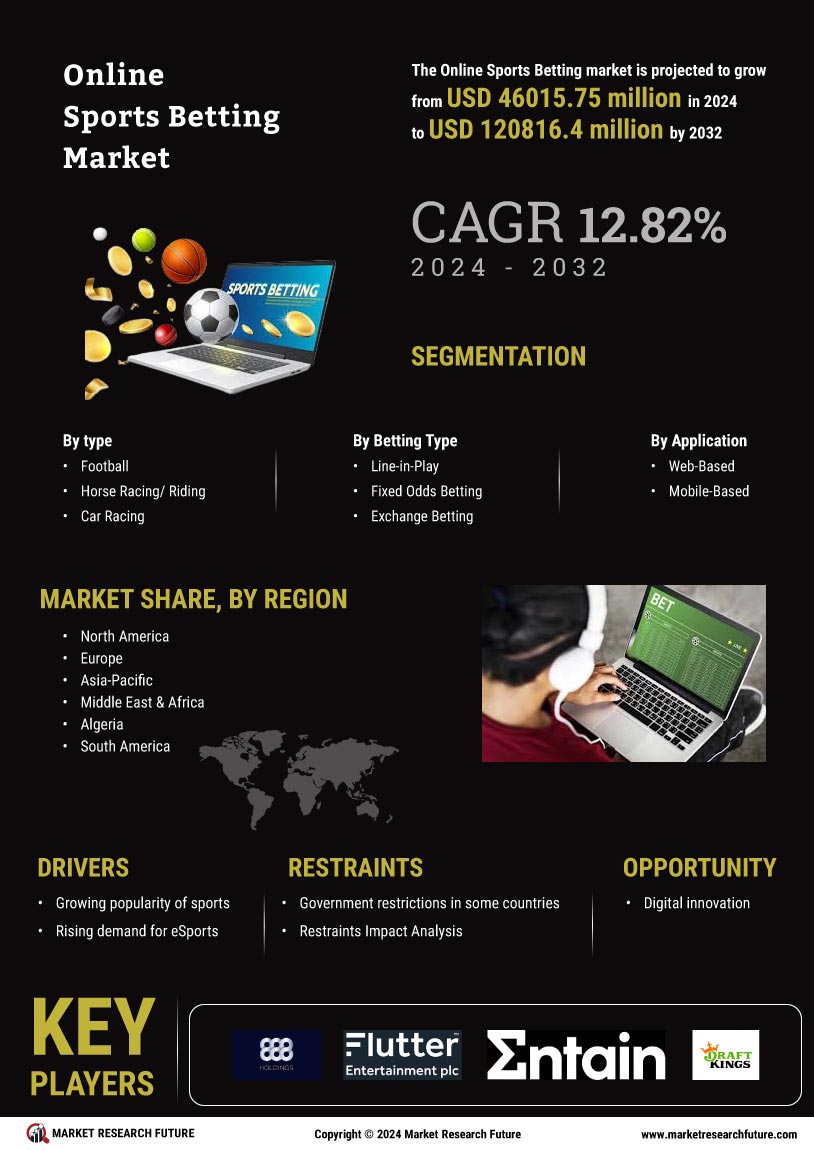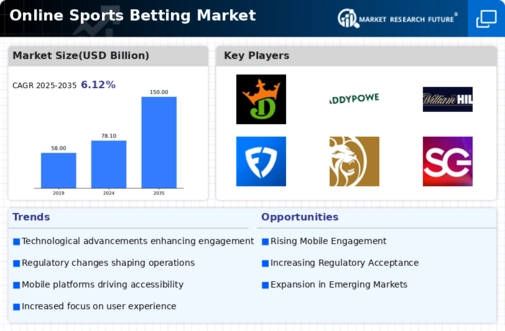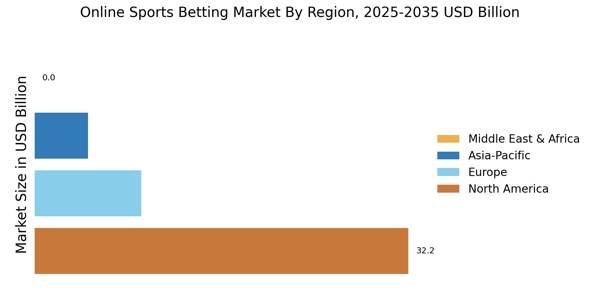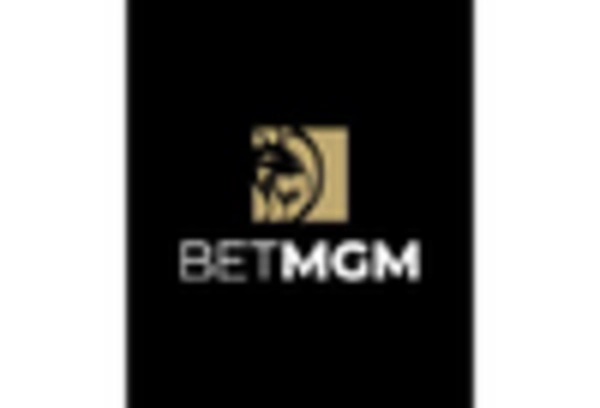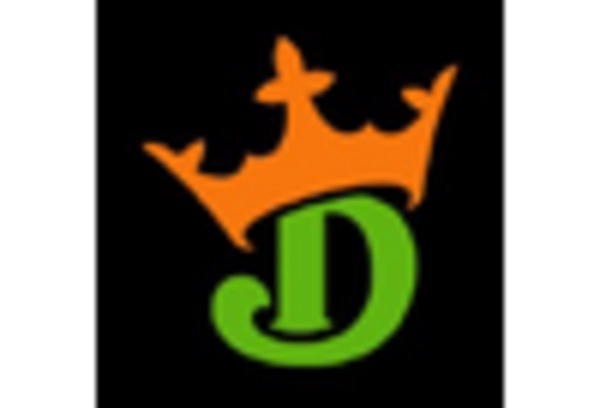Rise of Esports Betting
The rise of esports has introduced a new dimension to the Online Sports Betting Market. As competitive gaming gains popularity, betting on esports events has become a lucrative segment within the market. Recent data suggests that esports betting is projected to grow at a remarkable rate, with estimates indicating that it could account for a significant portion of the overall sports betting market in the coming years. This trend is driven by the increasing viewership of esports tournaments and the engagement of younger audiences who are more inclined to bet on their favorite games and players. Furthermore, the integration of esports betting into traditional sports betting platforms is creating new opportunities for operators to diversify their offerings. As the esports phenomenon continues to expand, the Online Sports Betting Market is likely to benefit from this burgeoning segment, attracting a new wave of bettors.
Increased Internet Penetration
The expansion of internet access has been a pivotal driver for the Online Sports Betting Market. As more individuals gain access to reliable internet services, the potential customer base for online betting platforms continues to grow. Recent statistics indicate that internet penetration rates have reached approximately 60% in many regions, facilitating a surge in online activities, including sports betting. This increased connectivity allows users to engage with betting platforms from various devices, enhancing user experience and accessibility. Furthermore, the proliferation of high-speed internet has enabled real-time betting options, which are becoming increasingly popular among bettors. As a result, the Online Sports Betting Market is likely to experience sustained growth as internet access continues to improve, attracting new users and retaining existing ones.
Regulatory Framework Enhancements
The development of clearer regulatory frameworks is playing a crucial role in shaping the Online Sports Betting Market. As governments around the world recognize the potential economic benefits of regulated sports betting, many are implementing comprehensive regulations to govern the industry. These regulations aim to ensure consumer protection, promote responsible gambling, and generate tax revenue. For instance, jurisdictions that have legalized and regulated online sports betting have reported increased tax revenues, which can be reinvested into public services. Moreover, a well-defined regulatory environment fosters trust among consumers, encouraging them to participate in online betting activities. As more regions adopt favorable regulations, the Online Sports Betting Market is likely to expand, attracting both operators and bettors seeking a secure and legitimate betting experience.
Emergence of Innovative Betting Platforms
The Online Sports Betting Market is witnessing a wave of innovation with the emergence of new betting platforms that offer unique features and user experiences. These platforms are increasingly incorporating advanced technologies such as artificial intelligence and machine learning to provide personalized betting options and predictive analytics. This innovation not only enhances user engagement but also improves the overall betting experience. For instance, platforms that utilize AI can analyze vast amounts of data to offer tailored betting suggestions, thereby increasing the likelihood of successful bets. Additionally, the integration of virtual reality and augmented reality technologies is beginning to reshape how users interact with sports betting, making it more immersive. As these innovative platforms continue to evolve, they are expected to attract a broader audience, further propelling the growth of the Online Sports Betting Market.
Changing Consumer Attitudes Towards Gambling
Shifts in consumer attitudes towards gambling are significantly influencing the Online Sports Betting Market. As societal perceptions of gambling evolve, more individuals are becoming open to participating in online betting activities. Recent surveys indicate that a growing number of consumers view sports betting as a form of entertainment rather than a vice. This change in mindset is particularly evident among younger demographics, who are more likely to engage with online betting platforms. Additionally, the increasing acceptance of gambling in various cultures is contributing to the expansion of the market. As more consumers embrace online sports betting as a legitimate leisure activity, the Online Sports Betting Market is poised for continued growth, attracting new participants and fostering a more diverse betting community.
